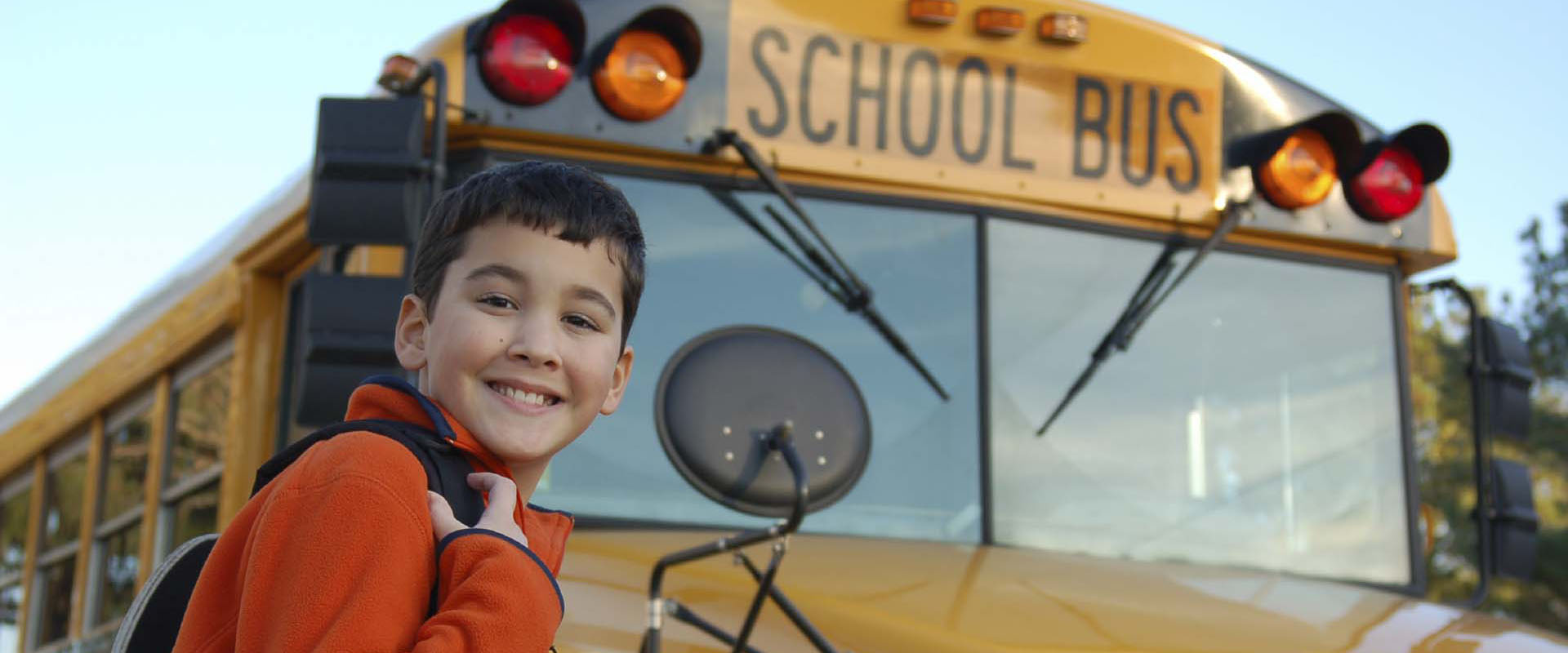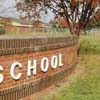Governor Newsom Signs Two Bills Aimed to Assist Local Educational Agencies During COVID-19 Crisis

March 2020
Number 19
On March 17, 2020, Governor Gavin Newsom signed two bills, Senate Bill (SB) 117 and SB 89, into law which provide for emergency funding to help fight the novel coronavirus (COVID-19) pandemic and help to clarify the law as it relates to school districts. The bills address several issues confronting school districts, county offices of education, and charter schools. SB 117 provides necessary funding, ensuring that local educational agencies (LEAs) may continue to operate, and waives various requirements and deadlines otherwise required by law. SB 89 provides for significant funding to be used to assist individuals, nonprofit organizations, and small businesses experiencing economic hardships due to the impacts of COVID-19. Both bills took effect immediately. Below are highlights of each bill.
Senate Bill 117
School Funding.
For purposes of Average Daily Attendance ("ADA") reporting to determine funding, LEAs need only report their ADA from July 1, 2019 to February 29, 2020, rather than July 1, 2019 to April 15, 2020. This has the effect of providing state funding for closed schools, as described and required by Executive Order N-26-20, with the stated intent to ensure that employees and contractors are compensated and paid during the time that a school is closed due to the COVID-19 pandemic. Because the legislation did not include details related to this compensation piece, some districts are grappling with how best to implement this provision.
Similarly, the bill provides that for After-School Education and Safety programs, LEAs will receive funding based on the ADA they would have reported but for the school closure.
The bill also appropriates $100 million from the state's general fund to be provided to certain LEAs for purposes of purchasing personal protective equipment, or paying for supplies and labor related to cleaning school sites, or both.
Instructional Time.
Schools that are closed are excused from the instructional time requirement. The requirement will be deemed to have been met upon written certification that the school was closed due to COVID-19 on a form unique to the current situation, rather than by following the typical waiver procedure.
Assessments.
SB 117 provides a 45-day extension for LEAs to administer English Learner proficiency assessments (normally required upon a pupil's initial enrollment and at least annually during a four-month period after January 1).
SB 117 provides for an extension of the testing window to perform such English Learner assessments (English Language Proficiency Assessments of California or "ELPAC"), equal to "the length of time a school is closed due to COVID-19, or until the end of the testing window, whichever comes first." The same extension applies to the testing window for the California Assessment of Student Performance and Progress (CAASPP), and the physical performance test.
On March 18, 2020, a day after SB 117 was signed into law, the California Department of Education announced that it had suspended all CAASPP testing and ELPAC testing for the 2019-2020 school year, and had placed the physical fitness test on hold until students returned to school.
Moreover, while not covered under SB 117, on March 20, 2020, Secretary of Education Betsy DeVos announced the United States Department of Education will grant a waiver to any state that is unable to assess its students due to the ongoing national emergency, providing relief from federally mandated testing requirements for this school year. Any state that receives this waiver may also receive a waiver from the requirement that this testing data be used in the statewide accountability system due to the national emergency. On March 26, 2020, California's waiver application was submitted and the U.S. Department of Education issued its preliminary approval. The public comment period for all stakeholders and LEAs is open through April 15, 2020.
Special Education & Student Records.
SB 117 extends the 15-day timeline a district has to propose an assessment plan to determine if a student requires an Individualized Education Plan (IEP) by the number of days the school is closed-in effect, the 15-day period is paused during the time the school is closed and begins running once the school reopens and the regular school session reconvenes.
Under existing law, parents of special education students have the right to examine and receive copies of the student's records within five business days, before any IEP meeting, and before any hearing or resolution session. The bill excuses LEAs that have closed from meeting these timelines, up until the school reopens and the regular school session reconvenes. However, the bill explicitly encourages LEAs to respond as expeditiously as possible to requests from parents or guardians received during the period of time a school is closed due to COVID-19. Because of what appears to be a Legislative oversight, some parents might assert that LEAs must respond to student records requests (within five business days), including the transfer of records to a student's new school district (within ten schooldays), according to normal timelines. LEAs should assume that the rules applicable to records requests under SB 117 apply to all student records requests, resulting in the waiver of timelines until COVID-19 school closures end. Still, LEAs should respond to parent requests during this time period "as expeditiously as possible." With this in mind, if an LEA knows that, due to COVID-19 school closures, it is unable to comply with a request for records within the normal five business day timeline or the timeline to transfer records to a student's new school, the LEA is best served to provide notice of this in writing to parents who request records during this time period. Note that timelines under the IDEA and FERPA still apply. For advice on guidance on how to respond to records requests during closures, please see our CNB.
Charter Schools.
A charter school that does not have an independent study program or distance learning program in its currently approved charter petition does not need to submit a request to alter its charter petition to offer independent study or distance learning programs during the period of time the charter school is closed due to COVID-19.
State-Subsidized Childcare and Development Programs.
Such programs are exempt from attendance and reporting requirements, subject to guidance from the State Superintendent of Public Instruction to ensure the continuity of payments. Pursuant to guidance and direction from the Superintendent, childcare and development programs shall be reimbursed using the most recent certified record or invoice available.
Uniform Complaint Procedure.
Timelines included in the uniform complaint procedure are extended by the length of the school's closure due to COVID-19.
Senate Bill 89
SB 89 appropriates $500 million from the General Fund-and up to $1 billion over time-to be used to provide assistance related to the impacts of COVID-19. The intent is to assist individuals, nonprofit organizations, and small businesses experiencing economic hardships due to the impacts of COVID-19.
Related Resources
The legal and practical realities of the current crisis are ever-changing. In our continued effort to equip public agencies with useful insights, we have compiled a suite of links to several resource and guidance documents and webpages available from the federal and state governments regarding COVID-19. You can access them here: http://www.lozanosmith.com/covid19.php.
For more information on issues arising from COVID-19, please contact one of our eight offices located statewide. You can also subscribe to our podcast, follow us on Facebook, Twitter and LinkedIn or download our mobile app.
Number 19
On March 17, 2020, Governor Gavin Newsom signed two bills, Senate Bill (SB) 117 and SB 89, into law which provide for emergency funding to help fight the novel coronavirus (COVID-19) pandemic and help to clarify the law as it relates to school districts. The bills address several issues confronting school districts, county offices of education, and charter schools. SB 117 provides necessary funding, ensuring that local educational agencies (LEAs) may continue to operate, and waives various requirements and deadlines otherwise required by law. SB 89 provides for significant funding to be used to assist individuals, nonprofit organizations, and small businesses experiencing economic hardships due to the impacts of COVID-19. Both bills took effect immediately. Below are highlights of each bill.
Senate Bill 117
School Funding.
For purposes of Average Daily Attendance ("ADA") reporting to determine funding, LEAs need only report their ADA from July 1, 2019 to February 29, 2020, rather than July 1, 2019 to April 15, 2020. This has the effect of providing state funding for closed schools, as described and required by Executive Order N-26-20, with the stated intent to ensure that employees and contractors are compensated and paid during the time that a school is closed due to the COVID-19 pandemic. Because the legislation did not include details related to this compensation piece, some districts are grappling with how best to implement this provision.
Similarly, the bill provides that for After-School Education and Safety programs, LEAs will receive funding based on the ADA they would have reported but for the school closure.
The bill also appropriates $100 million from the state's general fund to be provided to certain LEAs for purposes of purchasing personal protective equipment, or paying for supplies and labor related to cleaning school sites, or both.
Instructional Time.
Schools that are closed are excused from the instructional time requirement. The requirement will be deemed to have been met upon written certification that the school was closed due to COVID-19 on a form unique to the current situation, rather than by following the typical waiver procedure.
Assessments.
SB 117 provides a 45-day extension for LEAs to administer English Learner proficiency assessments (normally required upon a pupil's initial enrollment and at least annually during a four-month period after January 1).
SB 117 provides for an extension of the testing window to perform such English Learner assessments (English Language Proficiency Assessments of California or "ELPAC"), equal to "the length of time a school is closed due to COVID-19, or until the end of the testing window, whichever comes first." The same extension applies to the testing window for the California Assessment of Student Performance and Progress (CAASPP), and the physical performance test.
On March 18, 2020, a day after SB 117 was signed into law, the California Department of Education announced that it had suspended all CAASPP testing and ELPAC testing for the 2019-2020 school year, and had placed the physical fitness test on hold until students returned to school.
Moreover, while not covered under SB 117, on March 20, 2020, Secretary of Education Betsy DeVos announced the United States Department of Education will grant a waiver to any state that is unable to assess its students due to the ongoing national emergency, providing relief from federally mandated testing requirements for this school year. Any state that receives this waiver may also receive a waiver from the requirement that this testing data be used in the statewide accountability system due to the national emergency. On March 26, 2020, California's waiver application was submitted and the U.S. Department of Education issued its preliminary approval. The public comment period for all stakeholders and LEAs is open through April 15, 2020.
Special Education & Student Records.
SB 117 extends the 15-day timeline a district has to propose an assessment plan to determine if a student requires an Individualized Education Plan (IEP) by the number of days the school is closed-in effect, the 15-day period is paused during the time the school is closed and begins running once the school reopens and the regular school session reconvenes.
Under existing law, parents of special education students have the right to examine and receive copies of the student's records within five business days, before any IEP meeting, and before any hearing or resolution session. The bill excuses LEAs that have closed from meeting these timelines, up until the school reopens and the regular school session reconvenes. However, the bill explicitly encourages LEAs to respond as expeditiously as possible to requests from parents or guardians received during the period of time a school is closed due to COVID-19. Because of what appears to be a Legislative oversight, some parents might assert that LEAs must respond to student records requests (within five business days), including the transfer of records to a student's new school district (within ten schooldays), according to normal timelines. LEAs should assume that the rules applicable to records requests under SB 117 apply to all student records requests, resulting in the waiver of timelines until COVID-19 school closures end. Still, LEAs should respond to parent requests during this time period "as expeditiously as possible." With this in mind, if an LEA knows that, due to COVID-19 school closures, it is unable to comply with a request for records within the normal five business day timeline or the timeline to transfer records to a student's new school, the LEA is best served to provide notice of this in writing to parents who request records during this time period. Note that timelines under the IDEA and FERPA still apply. For advice on guidance on how to respond to records requests during closures, please see our CNB.
Charter Schools.
A charter school that does not have an independent study program or distance learning program in its currently approved charter petition does not need to submit a request to alter its charter petition to offer independent study or distance learning programs during the period of time the charter school is closed due to COVID-19.
State-Subsidized Childcare and Development Programs.
Such programs are exempt from attendance and reporting requirements, subject to guidance from the State Superintendent of Public Instruction to ensure the continuity of payments. Pursuant to guidance and direction from the Superintendent, childcare and development programs shall be reimbursed using the most recent certified record or invoice available.
Uniform Complaint Procedure.
Timelines included in the uniform complaint procedure are extended by the length of the school's closure due to COVID-19.
Senate Bill 89
SB 89 appropriates $500 million from the General Fund-and up to $1 billion over time-to be used to provide assistance related to the impacts of COVID-19. The intent is to assist individuals, nonprofit organizations, and small businesses experiencing economic hardships due to the impacts of COVID-19.
Related Resources
The legal and practical realities of the current crisis are ever-changing. In our continued effort to equip public agencies with useful insights, we have compiled a suite of links to several resource and guidance documents and webpages available from the federal and state governments regarding COVID-19. You can access them here: http://www.lozanosmith.com/covid19.php.
For more information on issues arising from COVID-19, please contact one of our eight offices located statewide. You can also subscribe to our podcast, follow us on Facebook, Twitter and LinkedIn or download our mobile app.
As the information contained herein is necessarily general, its application to a particular set of facts and circumstances may vary. For this reason, this News Brief does not constitute legal advice. We recommend that you consult with your counsel prior to acting on the information contained herein.





